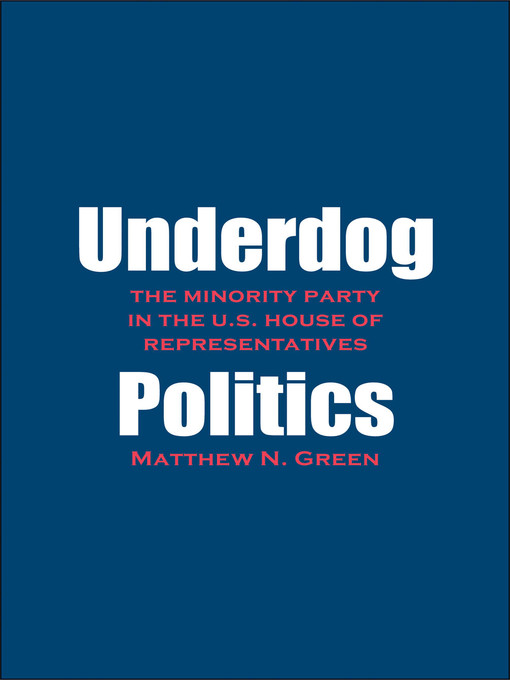In this comprehensive analysis, political scholar Matthew N. Green disputes the widely held belief that the minority party in the U.S. House of Representatives wields little or no legislative influence. Green has examined the record of House minority party members from 1970 to the present and offers empirical evidence of their important role in passing or blocking controversial legislation, often through active floor protests, press conferences, obstructionism, and other means. The author explores such spheres of minority influence as fundraising, candidate recruitment, and the shaping of public policy through well-orchestrated campaigns.
In addition to analyzing minority party voting behavior on key floor votes and procedural motions, Green supports his findings through information gleaned from a wide variety of original data, including documents and memos from congressional archives, media accounts, and personal interviews with current and former lawmakers and their staff. The result is the first systematic analysis of what the House minority party can do and why it does it, offering a clear and insightful picture of the inner workings of this famously contentious chamber of Congress.
- Available now
- New eBook additions
- New kids additions
- New teen additions
- Most popular
- Try something different
- Manga to Read (or Re-Read)
- Elections, Coups, & Sociopolitical Upheaval
- Celebrating Indigenous Peoples
- Manga
- See all
- Available now
- New audiobook additions
- New kids additions
- New teen additions
- Most popular
- Try something different
- See all

